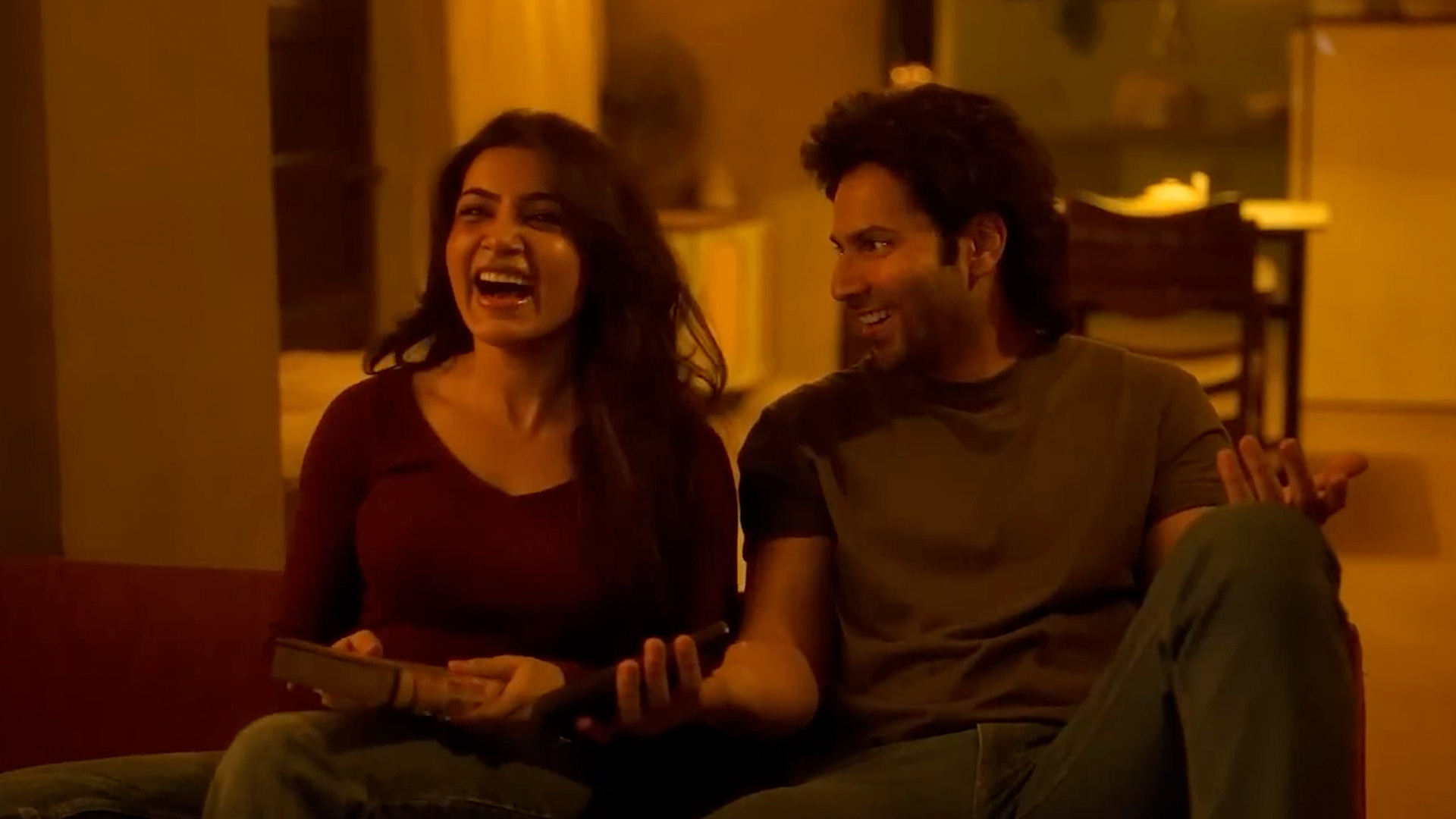As I conclude my viewing of the six episodes of “Citadel: Honey Bunny,” I can confidently state that this Indian rendition shines far brighter than its Hollywood counterpart, a project boasting a hefty $300 million budget and starring Priyanka Chopra. While the global franchise attempts to capture audiences with flair, “Honey Bunny” surpasses it in action choreography and storytelling, though one must ponder whether the bar was set too low for such expectations. The mixed reception this series has garnered may be more reflective of the middling nature of the original franchise than a shortcoming on the part of directors Raj and DK.
“Honey Bunny” acts as a prequel within the broader “Citadel” universe, focusing on the childhood of Priyanka Chopra’s character, Nardia, and her relationships with her parents, portrayed by Varun Dhawan and Samantha. The series transports us back to Bombay in 1992, where Rahi, played by Dhawan, mingles with the world of Bollywood as a stuntman, while Samantha’s character, Honey, navigates the struggles of an aspiring actress. Their lives intertwine with clandestine missions from a high-risk agency, exploring the complexities of technology associated with “Project Talvar” and unveiling the origins of these characters.

From a technical perspective, “Honey Bunny” excels, showcasing impressive cinematography that distills the vibrancy of 90s Bombay, contrasted beautifully with the more subdued, dreary streets of Nital in the year 2000. Raj and DK have a reputation for elevating their projects with stunning action choreography, and “Honey Bunny” remains faithful to this tradition. Memorable sequences, such as hand-to-hand combat and high-stakes confrontations, are crafted with a fluidity that captivates. The action scenes are well-choreographed and engaging, especially the introduction of Dhawan’s character and Samantha’s audacious takes against her foes. Raj and DK avoid the common pitfalls of poorly executed fight scenes, opting for technical coherence that enhances the viewing experience.
Yet, the series is not without its flaws. While showcasing the complexities of character relationships, awkward language choices arise, particularly with Hindi dialogue delivery that at times feels out of place or forced. For instance, Samantha’s emotional scenes are hindered by mixed language delivery, overshadowing the intensity portrayed in her action sequences. Such discrepancies disrupt the flow and, at moments, weaken the emotional stakes, as the characters fail to resonate fully with the audience.
The supporting cast, including Shivankit Singh and Sakib Saleem, shine brightly, adding depth and intensity that complements the lead roles. However, the character of Guru, played by KK Menon, feels underutilized, standing on the precipice of eccentricity yet never fully delving into the comedic potential inherent in his character.

Indeed, the most significant critique of “Honey Bunny” lies in its exploration of origins—moments that attempt comedy or comic-like relief but come off as half-hearted, diluting engagement with the protagonists’ backstories. Consequently, while Dhawan and Samantha deliver commendable performances, the series falters in making genuine connections that elevate the audience’s investment in the characters.
Overall, “Citadel: Honey Bunny” stands as a technically accomplished, visually captivating series that offers a distinct identity within a broader franchise that often feels lackluster. Whispered stakes and unfulfilled potential may detract from the immersive experience, but the creators’ evident commitment and creativity shine bright enough to carve out a respectable place for this rendition. In conclusion, it becomes clear that while Raj and DK exhibit their trademarks, the inherent shortcomings of the overall franchise leave the series feeling somewhat unfinished.